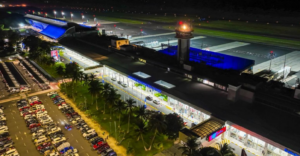El Salvador closed 2024 with a growing economy and controlled inflation, according to the Preliminary Balance of the Regional Economy published by the Secretaría Ejecutiva del Consejo Monetario Centroamericano (SECMCA). The report highlights that inflation in the region dropped to 2.22%, almost one percentage point less than in the same period of the previous year, consolidating a trend of price stability that favors consumers.
The country experienced economic growth estimated at between 2.5% and 3.0%, driven by key sectors such as manufacturing, trade, and services. Although this expansion is lower than that of other economies in the region, it reflects El Salvador’s resilience in the face of a challenging international financial environment.

At the regional level, the trade deficit reached US$58.804 billion, which represents an increase of 5.3% compared to 2023. This increase responds to the greater dynamism in imports of consumer goods and raw materials, reflecting greater economic activity and domestic demand.
Despite global economic conditions, public finances in El Salvador remained stable thanks to a cautious fiscal policy. Tax collection showed a positive performance, allowing the government to maintain control of spending without compromising its financial commitments.

The report also highlights that the Dominican Republic’s economy led regional growth with 5.0%, followed by Costa Rica (4.3%) and Guatemala (3.7%). Although El Salvador is not among the economies with the greatest expansion, its steady growth reinforces confidence in its macroeconomic stability.
Experts say that by 2025, the country could continue a path of moderate growth if it maintains its levels of investment and domestic consumption. Low inflation and prudent fiscal policy are key elements to sustain good economic performance in the coming months.
You may also be interested in







